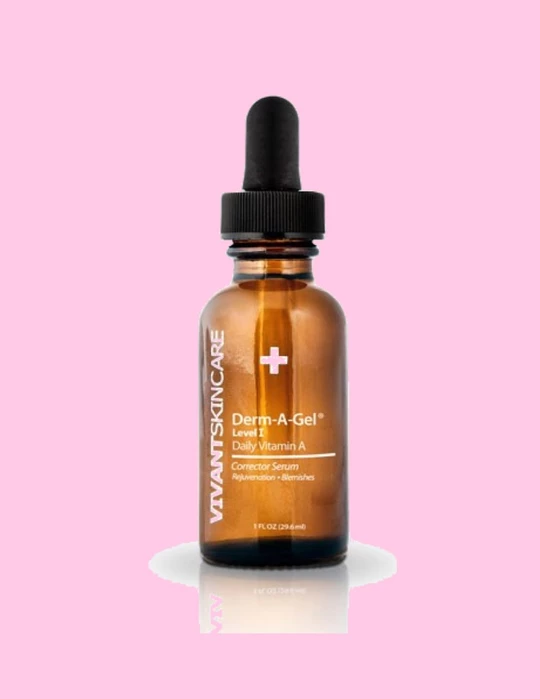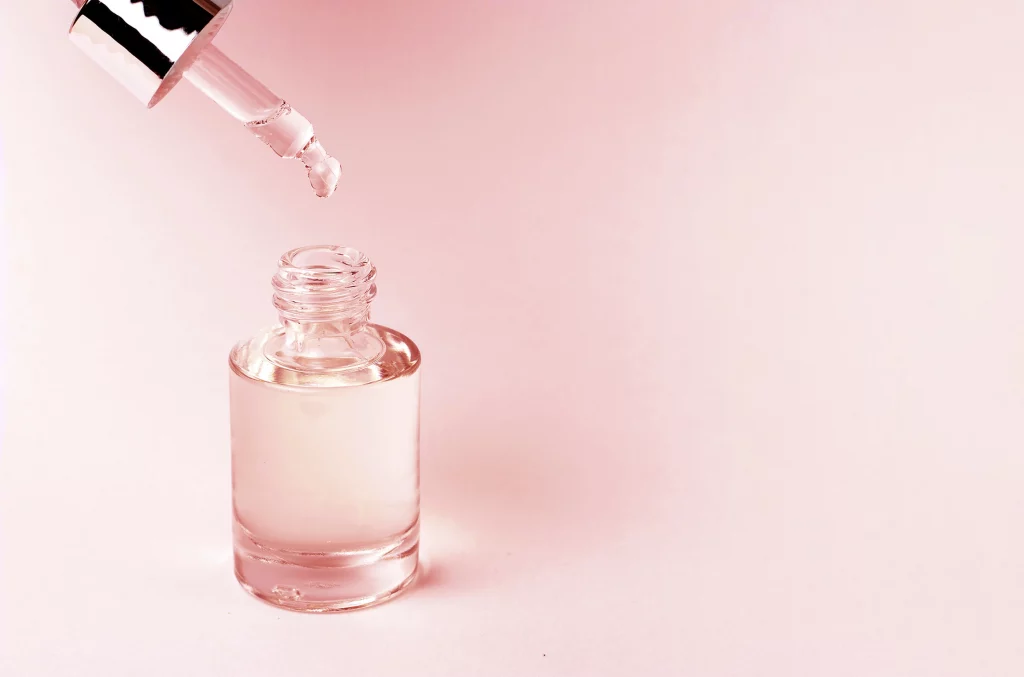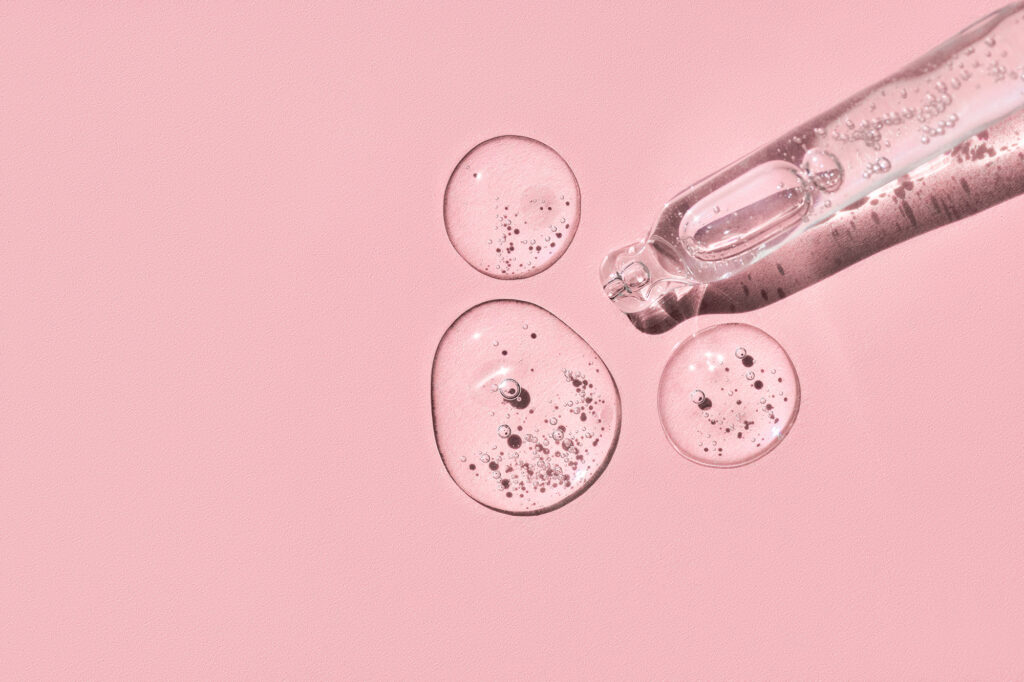Retinol stimulates collagen production (making skin appear more plump), increases cell turnover, disrupts fine lines and wrinkles, evens skin tone and even helps with acne!
The different forms can get confusing. It’s Retin A, or retinol, or retinoid, or wait isn’t that Vitamin A? What’s Retinoic acid? Let us help you keep it all straight.

The Different Forms of Vitamin A
Retinol is a skincare ingredient derivative of Vitamin A which is used naturally in skin cell turnover and collagen production. Our body processes Retinol into Retinoic Acid which then tells your skin’s cells to behave younger and subsequently produce more collagen.
For your skin to process retinol, it needs to be converted it into Retinoic Acid. When retinol is topically applied, enzymes get working right away convert it into retinoic acid – the length of the conversion depending on the strength of the retinol.
Retinoids are chemical compounds that are related to Vitamin A. They need fewer conversions than retinol to retinoic acid.
Retinoids are the strongest derivative of Vitamin A.
Retin A is the brand name of Tretinoin, which is a prescription strength retinoid. Retin-A is referenced as being 100 times stronger than retinol. It also has a more immediate effect because it is formulated as retinoic acid and unlike retinol, no conversion by the body is required. Its strong, short molecules act fast and can cause a lot of irritation and redness because of the speed in which they penetrate. That’s why they have to be monitored by a doctor!
Vitamin A Palmitate
Over the counter Vitamin A is typically in the form of Vitamin A Palmitate. Because its molecules are bigger, and subsequently don’t penetrate deeply enough, we typically caution against adding one of these products to your cart. They often can cause redness and irritation while simultaneously serving little absorbable retinol to your skin.
Vitamin A Propinate
Finally we have Vitamin A Propinate, patented by Dr. James Fulton and Vivant Skincare. Although we don’t represent any brands in particular, we often get asked what our go-to skincare products are to use at home. Very high on that list is Vivant Skincare’s Retinols. Their patented formula penetrates to all layers of the skin and encourages your skin’s cells to turn over in half the time, just 15 days! Thereby shortening the recovery period on acne, dark spots, fine lines, and more.
Click here to learn more about Vivant Skincare’s Retinols.

The Do’s & Don’ts of Using Retinol
Do:
- Be selective about which form of Retinol you choose. Whether you decide to enlist the help of you dermatologist or to invest in Vitamin A Propinate, be sure to steer clear of weak over the counter retinol products.
- Establish a routine. Begin by using your retinoid every other or every third night and work up to every night – most importantly, be consistent!
- Use retinol in conjunction with regular facials. By combining your skincare efforts, we can keep your skin’s cells turning over quickly and efficiently to achieve the beautiful, healthy skin that you want!
Don’t:
- Forget to moisturize. Skin can often get dry and irritated for a short period of time as it adjusts to retinol. This will typically go away with continual use, but keeping your skin moisturized properly will help with any dryness that may occur.
- Skip the sunscreen! Retinol can sensitize your skin to the sun’s harmful ultraviolet rays. While using retinol products it’s important to always use sunscreen.
Overall, retinol is wonderful and is extremely helpful for most skin concerns! Have you used retinol? What did you think?
